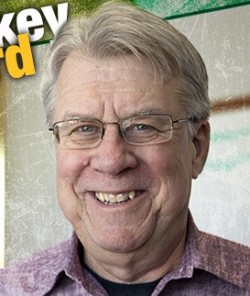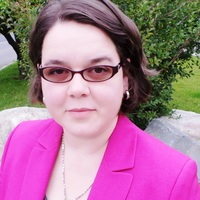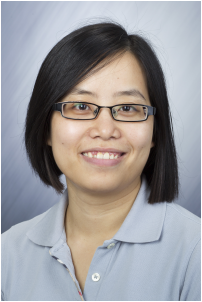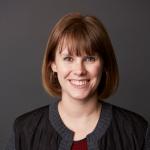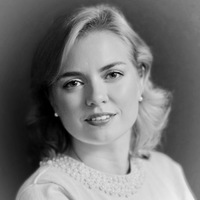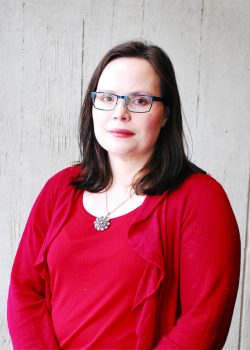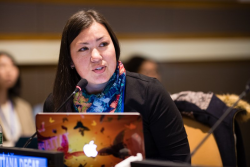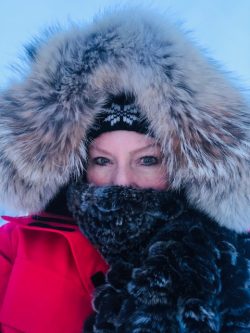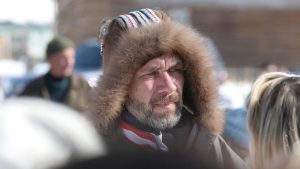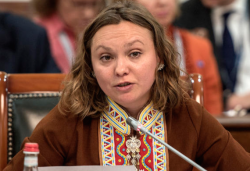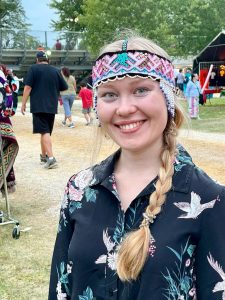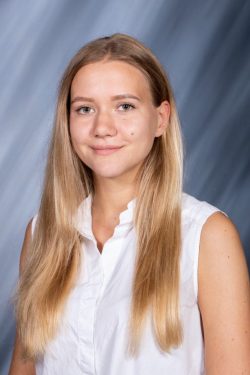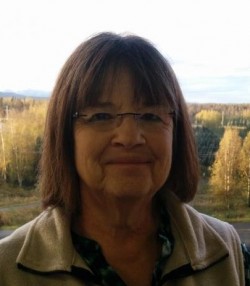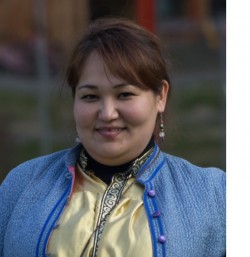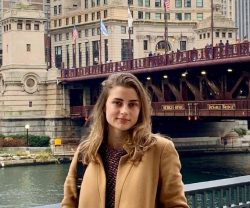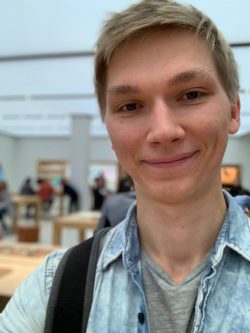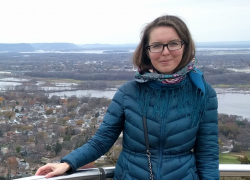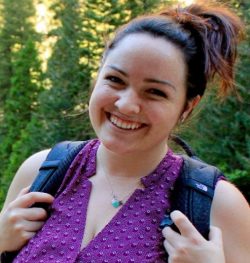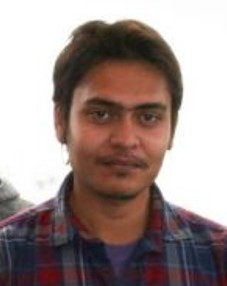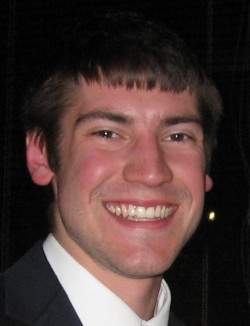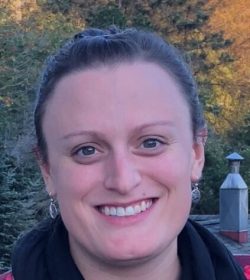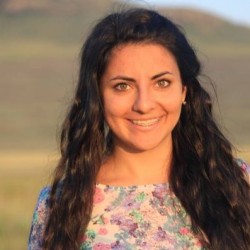Director
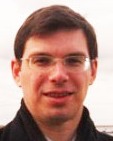
Andrey N. Petrov (PhD, Toronto; PhD, Herzen) is Professor of Geography and ARCTICenter Director at the University of Northern Iowa. Dr. Petrov is an economic and social geographer who specializes in Arctic economy and sustainable development, with an emphasis on the social geography of the Indigenous Peoples and changing Arctic social-ecological systems. His current research is focused on sustainable regional and community development, spatial organization, and restructuring of Arctic economies amid rapid environmental change. Dr. Petrov leads the Research Coordination Networks in Arctic Sustainability (Arctic-FROST) and Arctic Coastal Resilience (Arctic-COAST), as well as multiple research projects. He has extensively published on issues pertaining to socio-ecological change, human-environmental relations and demographic dynamics in the North. Dr. Petrov is the immediate Past President of the International Arctic Social Sciences Association (IASSA), Past Chair of the International Arctic Science Committee (IASC) Social and Human Working Group and a Past Chair of the Polar Geography Specialty Group of the American Association of Geographers (AAG). He currently sits on the International Arctic Science Committee and U.S. Polar Research Board.
Faculty Fellows and Visiting Scholars
Lee Huskey Distinguished Visiting Fellow (PhD, Washington University in St. Louis). Dr. Huskey is the leading resource economist in the Arctic and Professor Emeritus at the University of Alaska Anchorage.
Medea Csoba DeHass Visiting Scientist (PhD University of Alaska Fairbanks (Anthropology). Dr. Csoba DeHaas has studied the fusion of Russian Orthodox religion with Alaska Native cultures, lived in Nanwalek and now works to preserve Sugpiaq culture and language in Alaska. She is also an expert in museum technology, in particular, 3D object representation.
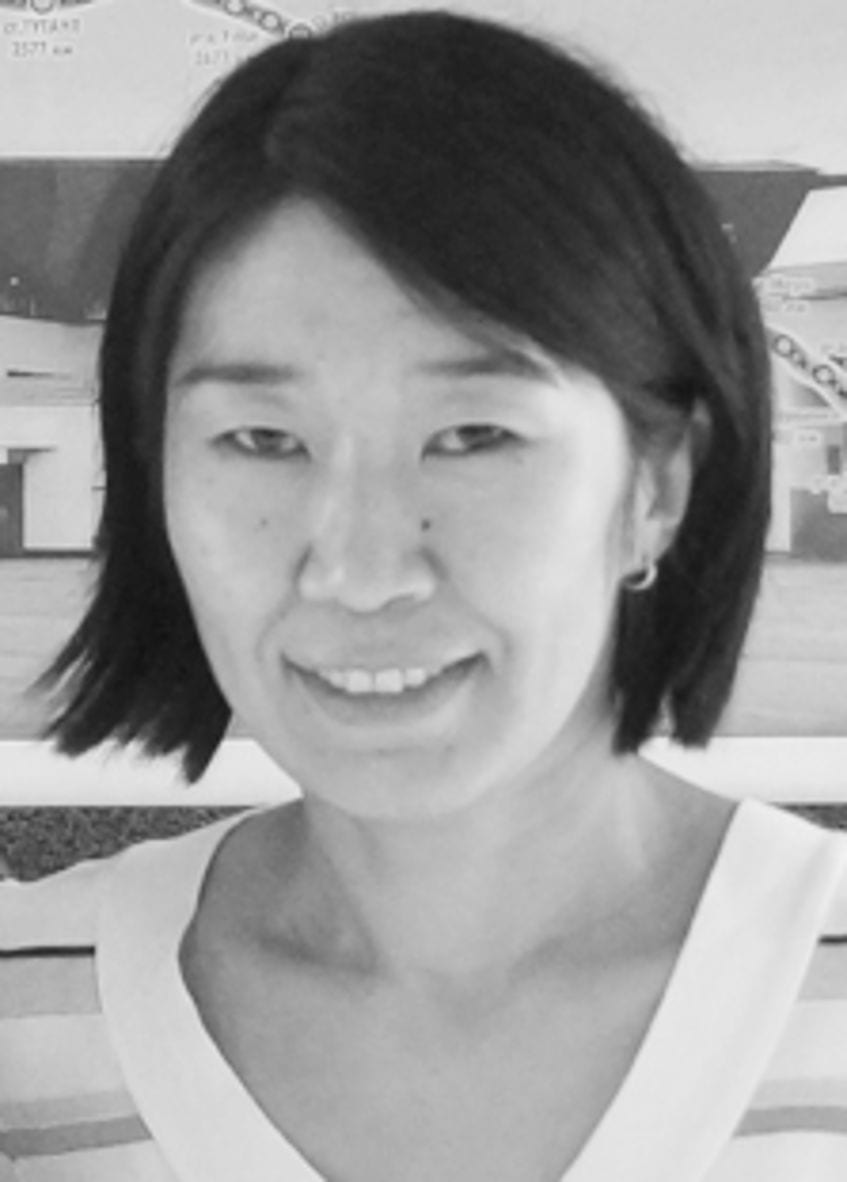
Vera Kuklina, Visiting Fellow in Arctic Social Sciences (Ph.D., Sochava Institute, Russia) Dr. Kuklina is a Research Professor at the George Washington University and Senior Researcher at the Sochava Institute of Geography, Russia. Vera Kuklina works with geographically remote communities of Siberia studying the issues of cultural sustainability, urbanization of indigenous people, urban and transportation infrastructure, and gendered division of labor.
Bingqing Liang, University Faculty Fellow (PhD, Indiana State University) specializes in remote sensing and geospatial technology. Dr. Liang studies application of hyper- and multispectral imagery in polar regions.
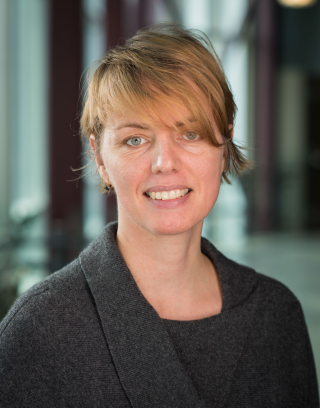
Natalia Loukacheva Visiting Fellow in Arctic Law (PhD, SJD, University of Toronto). Dr. Loukacheva specializes in international and comparative constitutional law, with a research interest in the Arctic. She currently serves as Canada Research Chair in Aboriginal Governance and Law and Associate Professor of Political Science at the University of Northern British Columbia.
Susan Meerdink, Regents Faculty Fellow (Ph.D., UC Santa Barbara) Dr. Meerdink is Assistant Professor of Geographical and Sustainability Sciences at the University of Iowa. She works at the intersection of machine learning, remote sensing, and ecology to understand our functioning natural environment. She uses computational spatial methods to characterize the vegetation function and the effect of physiology on the optical and thermal properties of plants. Dr. Meerdink is an ARCTICenter undergraduate student alumna.
Marya Rozanova Visiting Fellow in Arctic Social Sciences (PhD, St. Petersburg State University). Dr. Rozanova is an expert in the fields of migration policy and migrant integration, gender empowerment and in the Russian policy and the Arctic region. She teaches at the George Washington University and is a faculty at the Russian State Hydrometeorological University in St. Petersburg, Russia.
Marybeth Stalp, University Faculty Fellow (Ph.D. University of Georgia) Dr. Stalp is sociologist who focuses on women’s everyday lives and activities. The topics of her research cover Gender, Culture, Leisure, and Qualitative Methods.
Research Faculty and Staff
Michele Devlin, Affiliate Professor of Arctic Health and Human Security (Dr.P.H., UCLA; RN) Dr. Devlin is Professor of Environmental Security at the U.S. Army War College in Carlisle, Pennsylvania and Affiliate Professor of Arctic Health and Human Security with the UNI ARCTICenter. She is a specialist in global health, human migration and mass disaster response. She has worked or traveled in 65 nations around the world, including numerous countries in the Arctic. She has also served as a healthcare professional in the North Slope of Alaska. Dr. Devlin is an avid musher every winter, and particularly enjoys dogsledding above the Arctic Circle.

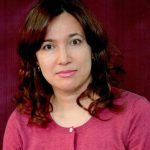
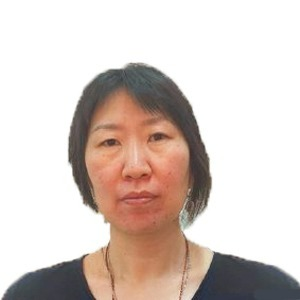 Mariia Kuklina, Postdoctoral Scholar (Ph.D., East-Siberia State University of Technology, Russia) is a Postdoctoral Scholar at the ARCTICenter. She is an expert in economic development in the Arctic, Siberia and Mongolia, digital Indigenous knowledge sharing networks and Indigenous social media, and tourism sector in remote regions. Over the past three years, Kuklina has participated in expeditions to remote areas of Tyva, Buryatia, and Sakha Republics, Magadan and Amur regions of Russia, as well as Mongolia.
Mariia Kuklina, Postdoctoral Scholar (Ph.D., East-Siberia State University of Technology, Russia) is a Postdoctoral Scholar at the ARCTICenter. She is an expert in economic development in the Arctic, Siberia and Mongolia, digital Indigenous knowledge sharing networks and Indigenous social media, and tourism sector in remote regions. Over the past three years, Kuklina has participated in expeditions to remote areas of Tyva, Buryatia, and Sakha Republics, Magadan and Amur regions of Russia, as well as Mongolia.  Nikolay Golosov, Research Affiliate (MA, UNI; BS, St. Petersburg State University, Russia) – specializes in GIS, spatial analysis and cartography. Nikolay is a PhD student at Pennsylvania State University. He is affiliated with the COVITA project.
Nikolay Golosov, Research Affiliate (MA, UNI; BS, St. Petersburg State University, Russia) – specializes in GIS, spatial analysis and cartography. Nikolay is a PhD student at Pennsylvania State University. He is affiliated with the COVITA project.
Schuerman Visiting Scholar-in-Residence
Aleksandr Pechen’. Aleksandr Pechen’ is a filmmaker, producer, Arctic sports enthusiast and organizer of the world’s longest sled dog race “Beringia” in Kamchatka, Russia. Mr. Pechen’ is in residence at ARCTICenter. His visit and stay is supported by the Jim and Connie Schuerman donation to the PROGRUS program.
2022 Schuerman Visiting Scholar
Diana Khudaeva is a Sakha film director and producer. Born in Yakutsk, Republic of Sakha (Yakutia) and graduated from St. Petersburg State University of Cinema and Television, since 2015 Diana has been filming documentaries about Sakha, its people and culture.
2020 Schuerman Visiting Scholar
Tatiana Egorova, Saami scholar and Head of the Indigenous Peoples’ Office of the Barents Secretariat in Murmansk, Russia. Tatiana’s visit was supported by the Jim and Connie Schuerman donation to the PROGRUS program.
Arctic Fulbright Scholar
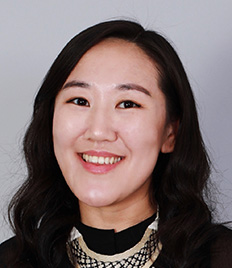
Lena-Ayaana Popova is from the village of Arylakh, Sakha (Yakutia) Republic. She is a researcher at the International UNESCO Chair “Social and Human Adaptation of the Arctic Regions to Climate Change and Globalization”, North-Eastern Federal University. She graduated from the University of Paris-Saclay with Master in Arctic Studies and is doing her PhD in Geography at the University of Manitoba. Lena has a wide range of research interests: remote sensing, traditional way of life, indigenous knowledge, climate change, social and economic development of the Arctic and spiritual culture.
Student Researchers
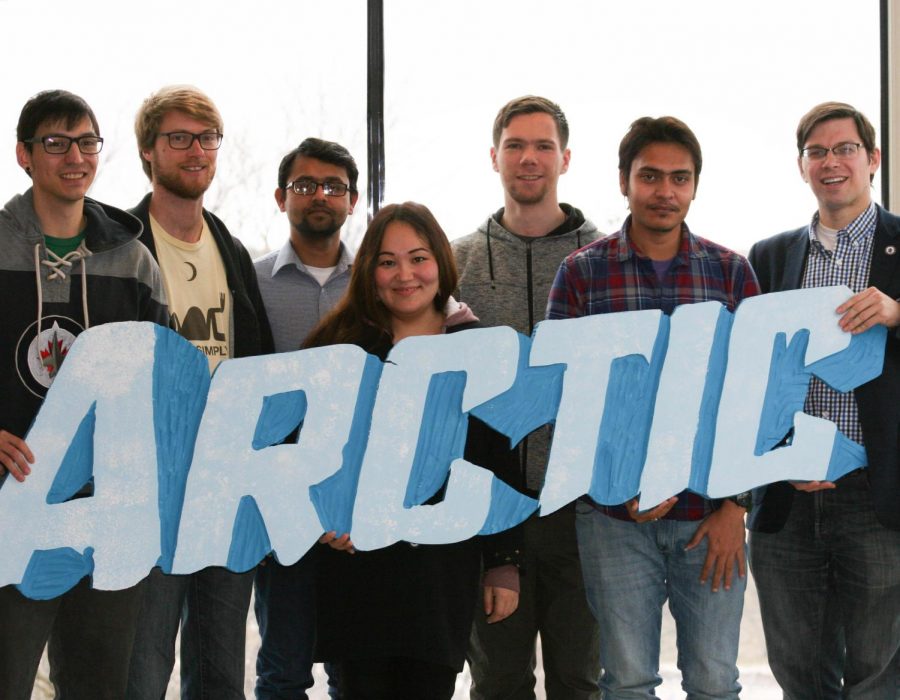 Flashback photo (L-R): Chris Pierce, Grant Burke, Atiq Rahman, Varvara Korkina, Nikolay Golosov, Ayan Sasmal, and Andrey Petrov (courtesy of Northern Iowan, 2017)
Flashback photo (L-R): Chris Pierce, Grant Burke, Atiq Rahman, Varvara Korkina, Nikolay Golosov, Ayan Sasmal, and Andrey Petrov (courtesy of Northern Iowan, 2017)
Polina Syadeyskaya (BS, Moscow State Institute of International Relations) is a Nenets scholar working on legal and economic issues associated with traditional economic activities of the Indigenous People in the Arctic.
Benjamin Lynch (BS, UNI)
Tesleem Ajisafe
Maria Monakhova (MA, UNI; BS in Economics & Law, RUDN University) – specializes in sustainable development and spatial analysis. Maria works on the ARC-NAV project assisting in the investigation of community adaptation to changing ice conditions in the Bering Sea. She is a PhD student at Arizona State University.
Undergraduate Assistants
Nathan Reinke
Kevin Smith
Administrative Staff
Ann P Crawford (BA, University of Iowa & BA, University of Northern Iowa) – ARCTICenter administrative assistant. Ann leads Center’s operations and coordinates administrative processing. Ann also has served as the Secretary for the International Arctic Social Sciences Association (IASSA).
Research Affiliates and Alumni
Varvara Korkina Williams (MA, UNI; BA, Altai State University, Russia; MA, UNI) is ARCTICenter Affiliate and a Kumandin scholar who specializes in Indigenous rights, governance, cultural economy, and community well-being. Her research also involves Arctic youth, and Indigenous urban youth in particular. Varvara is a Project Manger and Arctic Innovation Scholar at Dartmouth College.

Semyon Drozdetckii (MA, UNI; BS in Geography, Herzen University, Russia). Semyon is a human geographer with interests in pollical, economic and historical geography. He is currently working on analyzing community testimonies of the COVID-19 pandemic and examining the history of social science research mythologies in the Arctic.
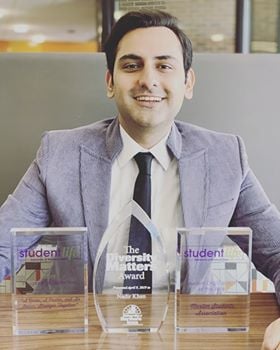
Nadir Khan (BA Public Health, UNI). Nadir is a student in the Master’s in Public and Community Health program at UNI. He focuses on public health issues and is interested in examining the role of public policy interventions in the COIVID-19 pandemic dynamics in the Arctic.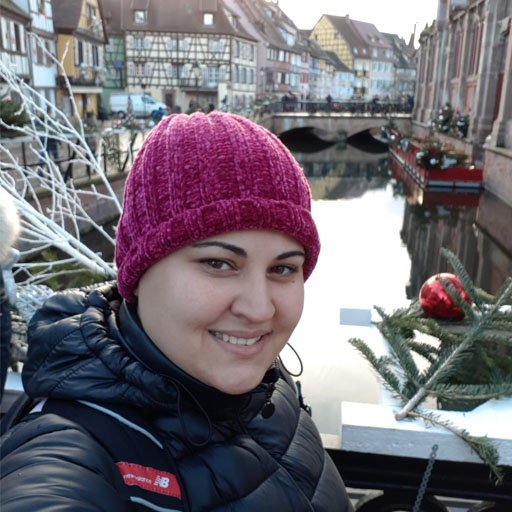
Nino Mateshvili (MA, UNI; MA in Demography, Tbilisi State University, Georgia) is a Fulbright Foreign Student Program fellow scholar from Georgia (the country) undertaking MA study in Geography at the University of Northern Iowa Graduate school. She has gained her BA in Human Geography and MA in Demography at the Tbilisi State University, Georgia. Currently she is interested in studying Geographic Information Systems at UNI to implement GIS as a data analyst tool in socio-economic and demographic research.
Natalia Khortseva (MA, UNI; BS, Higher School of Economics) – specializes in human geography. Works on a project about municipal sustainable development in the Russian Arctic.
Petr Grin (MA, UNI; BA, MS Moscow State University, Russia) – specializes in GIS, spatial analysis and cartography. Specializes in economical geography, cooperation in oil and gas development in Arctic area.
Nikolay Golosov (MA UNI; BS, St. Petersburg State University, Russia) – specializes in GIS, spatial analysis and cartography. He works on the TAMARA project mapping wild reindeer migration in Taimyr, Russia and COVITA projects.
Siobhan McTiernan (MA, UNI; BA, University of California, Berkeley) – specializes in physical geography, remote sensing, wildfire ecology and impacts of transportation infrastructure in the Arctic.
Ayan Sasmal (MA, UNI, MS, University of Kota; BS, Hemvati Nandan Bahuguna Garhwal University, India) – specializes in biogeography, remote sensing of cold environments and cryosphere. He works on a bio-energy model of caribou and wild reindeer.

Anna V. Pestereva (ABD, St. Petersburg State University; MA, University of Northern Iowa) – Anna is interested in spatial modeling of climate change and wild reindeer migration in northern Russia. She works as a data analytics adviser at the CVS Health headquarters.

Atiqur Rahman (MA, University of Northern Iowa; BS, University of Dhaka, Bangladesh) – specializes in GIS and remote sensing of Arctic tundra landscapes. Atiq is a PhD students at Florida Atlantic University.
Philip A. Cavin (MA, BA, University of Northern Iowa) – works on issues of economic development, human well-being and socio-economic impact assessment in remote and rural areas. Phil is a project manager at the Data Business Equipment Inc.

Jonathon J. Launspach (MA, BS/BA University of Northern Iowa) – specializes in GIS analysis, remote sensing and fire-induced ecosystem change. Jon is a senior GIS Specialist based at the EPA Mid-Continent Ecology Division.
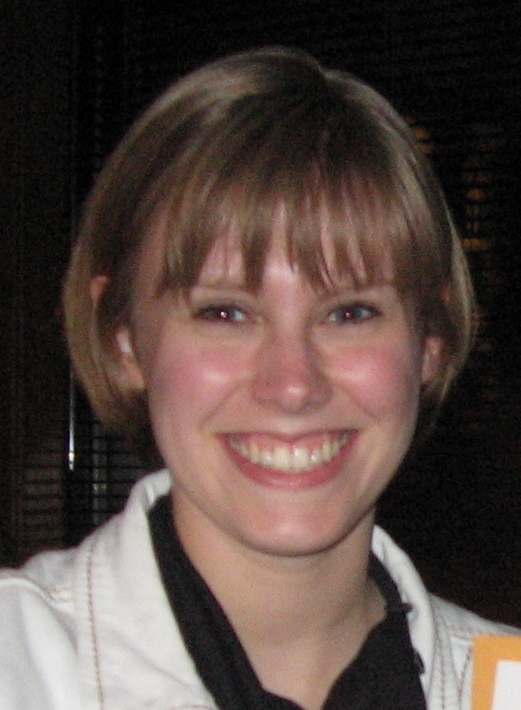
Susan Meerdink (PhD, MA, University of California, Santa Barbara; BS/BA, University of Northern Iowa) – specializes in remote sensing, biogeography, environmental analysis and GIS. Susan studied spatial dynamics and behavior of migratory wild reindeer in the Arctic. She received PhD from the University of California, Santa Barbara and now works as Assistant Professor at the University of Iowa.

Matthew Cooney (MA, University of Northern Iowa; BA, Clarke University) – specializes in environmental analysis and GIS. Matt studies climate change and spatial dynamics of migratory caribou and wild reindeer in the Arctic. Matt is the GIS Director at the Colorado College.

Ekaterina Korzh (MA, UI, MA University of Northern Iowa; BS, St. Petersburg State University, Russia) – specializes in human geography and GIS. Her research focuses on economic development strategies and population change in marginal communities. Ekaterina is a graduate student at the University of Kansas.
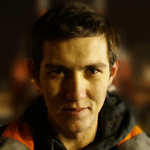
Andrei Kushkin (PhD, Texas State University; MA, University of Northern Iowa; BS, St. Petersburg State University, Russia). Andrei’s research concentration is GIS, cartography, computational geography and low altitude remote sensing. Andrei is a PhD student at Texas State University.

Arif Masrur (PhD, Pennsylvania State University; MA, UNI; BS, University of Dhaka) – specializes in environmental geography and GIS. His research focuses on wildfire activity and climate change in the Arctic. Arif has completed PhD at Pennsylvania State University and now works for ESRI.
Emily Francis (MA, UNI; BS, Keene State College) – specializes in environmental geography, biogeography and GIS. Her research focuses on wild reindeer/caribou and environmental dynamics in the Arctic. Emily has worked as a Biologist with the U.S. Fish and Wildlife Service and Fellow at the National Science Foundation (NSF). She now pursues her PhD at the University of Maine. 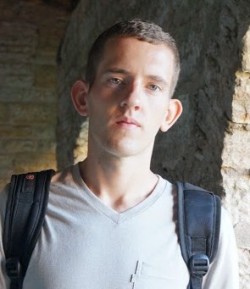
Daniel Murphy (MA, BS, University of Northern Iowa) specializes in GIS and remote sensing. Dan is the Customer Service and Satisfaction Manager – North America at senseFly.
Narmina Iusubova (MA, UNI; BS, St. Petersburg State University, Russia) specializes in GIS and renewable energy. Her research focuses on geovisualization techniques and renewable energy in the Arctic. She currently works at the North Carolina State University.
Leonid A. Kolpashchikov (Dr. Sci.) – Head of Research, The Joint Directorate of Taimyr Nature Preserves. Dr. Kolpashchikov is the world’s leading specialist in biology and biogeography of Arctic large mammals.
Hakima Afzaly (MA in Critical Gender Studies, Central European University). Hakima is a Fulbright Foreign Student Program fellow and MA candidate in the UNI Women’s and Gender Studies Program. She investigates impacts of the COVID-19 pandemic on women in the Arctic.

